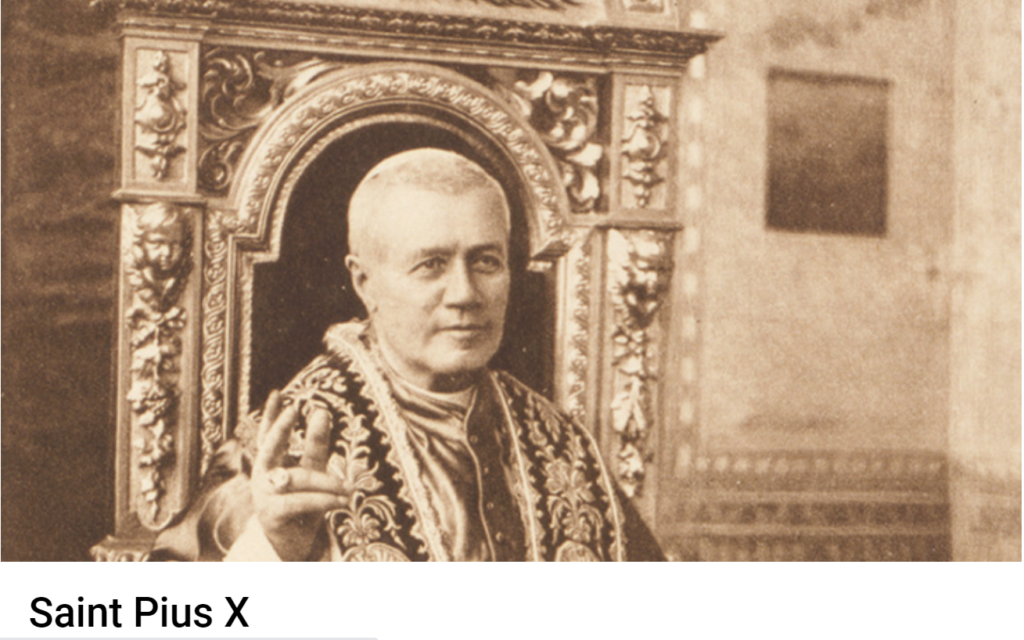
“Writing Checks Does Not Change Hearts”
Father Peter Fitzgibbons
February 25 – 26, 2023
Gospel: Matthew 4:1-11
Remember when reading scripture, you must consider the culture. Forty days and forty nights in Hebrew means a long time. They used hyperbole. Just last week a minister took Jesus at His word literally, and he fasted for forty days and forty nights. He didn’t even come close to forty days before he died. “Jesus will save me from having no food and no water.” Not from being stupid He won’t. Jesus prepared Himself for His public ministry by going a long time without food or water. Forty days may not be accurate, but then again, He is God. So, there is that to consider.
The temptations of Christ all lead, in their own way, to what He came here to do . . . to suffer, die, and open the gates of Heaven for us if we imitate Him. If we want to be with Him, we have to imitate Him. The temptations of Christ are the same temptations we will face. He endured everything as we do because He was true man but without sin. We will have those same temptations. “People are bad because they don’t have stuff.” That’s not true. How about that murderer in South Carolina. He was a rich man and brilliant. You can’t get through law school on your looks. He had money, so what happened to him? How many millionaires wind up in prison? A lot. If you do something stupid and get caught, that’s what happens. “People need a computer.” Not so much a computer anymore because that’s old school. They need an iPhone, iPad, or whatever. But it’s not a lack of stuff that makes us sinful. It’s willfully turning our backs on Christ. Is everyone at Felon University (a prison) there because they didn’t have access to an Android cell phone? No. They are there because they chose to be evil. Being poor doesn’t cause you to be bad. Not having the latest Android phone won’t cause you to rob a bank or inhale cocaine. Those are self-inflicted wounds. You are choosing something instead of Someone. Our faith is centered around a Person and in a Person – Jesus Christ.
Almsgiving covers a multitude of sins but after the almsgiving you must have Jesus. You cannot make people better by simply writing checks. Look at the Church which has become Church, Inc. Recently, I received a nice brochure from the Office of Planned Giving. It said, “Father, talk to your people. Encourage them when they die to leave their estates to the Church and the Foundation of the Diocese in Charlotte. Are you kidding me? All this money we send them is for the magnificent buildings and tons of staff they have. “Oh, we all work for the poor.” Ah, have you been to Albemarle? We are poor. “Can you leave us some money for the DSA, priest retirement, and administrative expenses?” Really? I’d be better off working with Tony Soprano. At least there I’d get some protection if I paid Tony 10%.
The second temptation of Christ was to throw Himself down and have the angels support Him. Religion is not a show. “Give them a show and they will come.” Remember Herod? Jesus came to him and said, “Herod, what. . . no show? Nothing?” We want a show even at Mass. “We come to Mass, and it’s the same boring stuff.” How you can call Christ boring is beyond me and is kind of blasphemous. I was about to have Mass in Statesville when somebody came up to me and said, “Father, we can’t start Mass. We don’t have a reader.” It will be alright; I’ve been doing this a long time. “But we need someone.” I’ve got this. It’s not a big problem. “Father, we have no music.” That’s alright . . .they didn’t have a band at the Last Supper either. And I’m pretty sure there also wasn’t one at Calvary. You’ve got me and the elements. That’s all we need. If you go to other churches, they sing six verses of songs. I believe that’s sinful because Church Law says that music should not interfere with the progress of the Mass. I offer Mass at Felon University (the prison), hospitals, and nursing homes and there is no music, and nobody sings. Although at the hospital I get some pretty odd reactions. I was saying Mass one day and this one guy said, “Father, so-and-so said I could be a priest.” Another said, “I’m a saint.” Well, not yet but you are headed toward it. The first step to sainthood is death. When I say Mass in nursing homes, they fall asleep . . . just like you. So, I’m used to it.
We all want a show. Instead of focusing on the Blessed Sacrament, we focus on the process and who does what. Some of the guidance I’ve received is silly. “People must take their proper role at the Mass.” Well, we have people, and we have Christ. Perfect. That’s all we need. There is nothing else. We cannot give greater meaning to Christ. Whether it is holding your hands up during the Our Father (a priestly gesture and should not be done) or joining hands, it is all made up stuff. It doesn’t make anything more meaningful. You cannot put more meaning into Christ. We can only receive Him with greater love through the Sacraments, prayer, and mortification. The Holy Sacrifice of the Mass is not a show – it’s an act of love.
We need to talk to everyone and be part of the political system.” No, you don’t. Everything can become political fodder. For example, I’m curious about why the Vatican has a representative at the United Nations, and I’d like to ask a few questions. “Excuse me. How much does that cost? Who pays for that?” If you are so concerned for the poor, knock it off. I don’t know if you have heard about it, but these days we have something called email. So, I think we can get the message out. We don’t need someone physically present in a dress to talk to people who don’t care for them. How many converts are you getting there, Bishop? Are you getting as many as Saint Theresa by tending to lepers in their disgusting condition? They don’t smell like they do on television. Ask any nurse. There’s not enough Lysol to cover that smell.
“We are called to be holy. By being holy, we can change things. We don’t change people by creating more laws. We have more laws than we know what to do with. It’s not that we have bad laws. We have laws we cannot enforce. I love reading the sheriff’s blog in the newspaper. “Felon caught with a gun.” Don’t you think they know they’re not supposed to have a gun? I don’t think they bought it legally at Walmart. Shocking! Don’t you think they know that possession with intent and a laundry list of other crimes is bad? “Oh! I didn’t know selling heroin was bad.” Public schools! We don’t change laws – we change hearts. We change hearts by Christ and not by someone with a badge and a gun.
It’s not about a show. It’s not about political power. It’s about the power of Christ. You do not change society by changing laws. We have more laws than we can possibly enforce and too many for lawyers to remember. But we can change society by first changing our hearts and then changing the hearts of others. True power in this world is not gained by holding a political office. It comes by having Christ in our souls and being holy. Then we can change things because we are changed. We bring that agent of change which is Christ to others. When our own hearts are changed, then we can influence others. We change hearts that way and not by changing laws. It can be very difficult when we try to do the right thing, and sometimes people won’t appreciate us. That’s okay. They didn’t appreciate Christ either. But you are “worthy to suffer for the name.” And just as they tempted Christ, they will tempt us. When you are tempted, say, “Hey, I must be doing okay because I’m being tempted like Christ was. Jesus came to change hearts. He did not create one piece of legislation. He did not call for conferences or senates. He called us to holiness and communion with Him. To walk with Him, to be one with Him and, especially during this season of Lent, to be one with Him on the Cross.
How will you apply this message to your life? _________________________________________
You can read all of Father Fitzgibbons’ sermons by going to annunciationcatholicalbemarle.com and clicking on “Blog” then “Categories” then “Sermon Notes.” On a cell phone: click on “Blog” then “Menu” and then “Categories.” Sermon Notes are also available on the church Facebook page at facebook.com/ola.catholic.church. Click on “Groups” and then “Sermon Notes.”



